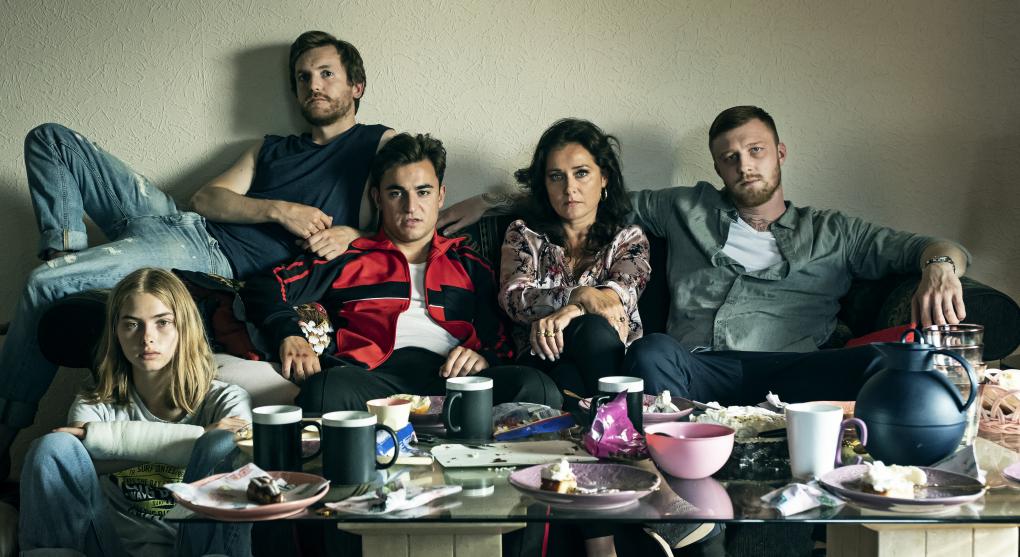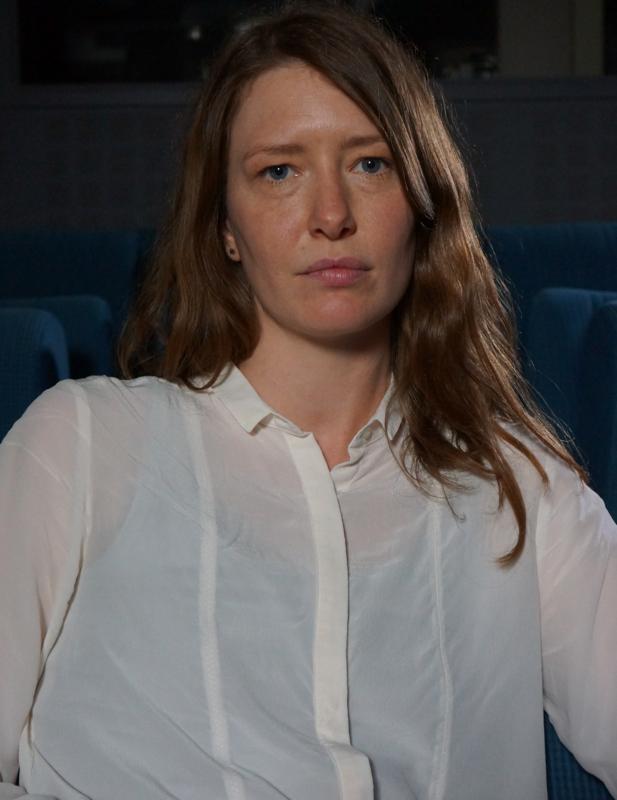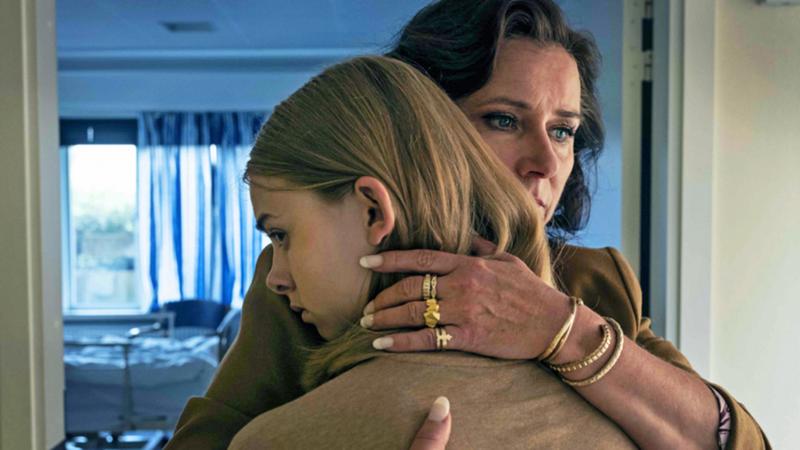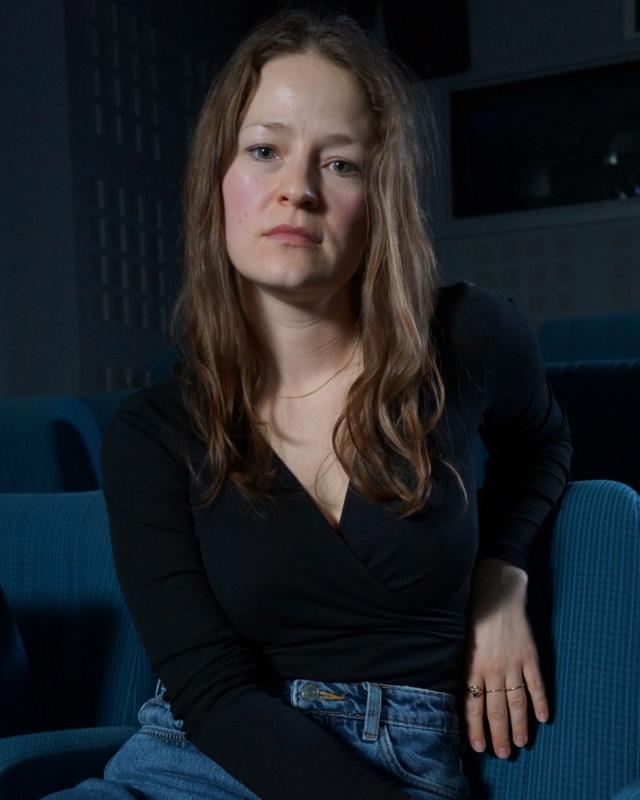
'Wildland' is a drama about a family living in the Danish countryside. The twist is this family are small-town criminals led by a loving but ruthless matriarch.
The story follows 17-year-old Ida, who loses her mother and has to go live with her estranged aunt Bodil and her three sons. Ida soon learns about their strong bonds but also their criminal way of life involving debt collecting and drugs.
Director Jeanette Nordahl and writer Ingeborg Topsøe had previously collaborated on the 2016 short 'Nylon'.
"One thing we enjoyed doing in the short was creating a family with secrets," Topsøe recalls. "I think that's something we really wanted to take on with the feature. And then we also wanted to play with genre. If you're fascinated by family dynamics, then playing with the mafia genre just makes a lot of sense."
Nordahl is a fan of mafia classics like 'The Godfather', but that's not what audiences should expect from 'Wildland'. For starters, the violence isn't as glorified or in-your-face as in most mafia tales.
"None of us had worked with violence before," the director explains. "I think it was something that we just really wanted to try out and explore. To explore the genre and make it our own. We wanted to show that violence can exist around the breakfast table."
Having a female lead was another big departure from most mafia films. 'Wildland' plays with the idea of the woman as head of the crime family but also head of the physical family. Motherhood is also explored "as a very physical act of carrying on the family and the idea that a mother is passing on something to a child that you don't really want to pass on," Topsøe says.
Nordahl adds, "This love and violence coexist. That was what we wanted – to not separate it."
A close collaboration
The pair met through a mutual friend, production designer Helle Lygum Justesen, and found they shared a similar ethos.
Nordahl graduated from Denmark's Super16 film school in 2012. Topsøe studied philosophy in Denmark before studying at UCLA and then earning a screenwriting MA at the UK's National Film and Television School.
"I think there's a huge amount of overlap in our human interest," says Nordahl.
Topsøe, who previously wrote Milad Alami's 'The Charmer' and an episode of Amazon Prime's 'Hanna', adds, "We think a lot about the individual versus the group. We do like to talk in really big terms, what a story means, what it says about human society. But then we also want to obviously make it really tangible and simple."
Nordahl says, "We have a common ground of interests, like in exploring the community and the effect it has on the individual. And this kind of bended love that exists in families. And we like the same kind of work process – we both like having an intense collaboration.”
Topsøe agrees, "We really like to be thorough and prepared. Jeanette wants to be prepared as a director and that pairs well with having a script that's really worked through in pre-production."
For instance, Topsøe visited all the film's locations once they were chosen and adjusted the script as needed.
Nordahl says, "Ingeborg's writing works well with how I direct, because she works in detail. When you read a scene she has written it's always full of these tiny details that says something bigger about the characters and something bigger about the story in itself."

An atypical mafia story
The result is an atypical mafia story – a film that can be both sensitive and muscular, and without any clichéd crime baddies.
Nordahl says that was something the actors could grab onto. These characters feel like real people, not caricatures of criminals. "We talked about how the characters keep on trying to do what is best. In that sense, the actors can look for the positive thing in everything they do."
They did talk to several criminal detectives about how such families operate, especially in small towns. But it was always the violence and threat within the family that interested them the most.
The casting was absolutely crucial, starting with Sidse Babett Knudsen as Bodil, the matriarch. Nordahl knew the actress from her work as assistant director on 'Borgen'.
"With Sidse we were able to create a Bodil that you just couldn't hate. So that just made it even more fun to push her in those directions. She has that warmth that you can't take away from her," the director explains.
Nordahl said the more reserved character of Ida amps up the drama in a subtle way. "She is an observant character. You only see what she sees. We have to experience it with her. That is such a great way to keep the secrets, to make sure all of these dark places stay dark."
Nordahl says of Sandra Guldberg Kampp, who was 17 when she played Ida, "Sandra is not Ida but she is the kind of person who would come into a room and you might not notice her to begin with. But then as soon as you see her, she takes up all your mental space. She just has this presence. And there's a vulnerability to her."
Danger lurking in the sunlight
The team shot for six weeks during a surprisingly sunny period, something that Nordahl and DoP David Gallego could use creatively. "Everything was so beautiful and sunny, and it was so wonderful to create this family as a contrast to that. To have all the danger lie in the darkness is a traditional way to create tension. So it was a challenge to create it in the sunlight. It becomes eerie in a different way," Nordahl says.
She continues, "We wanted to work with a texture in the lenses to give it a little bit of graininess or texture in this sunshine. We have somewhat of a classic visual approach but then we twisted that a little bit. So this familiarity can seem unsafe, because we keep twisting it."

All of Nordahl's work as an AD for years helped her feel natural on set. "It's probably where I feel the most comfortable," she says.
Topsøe was impressed: "Because she's so comfortable on set she's really open. That takes a lot of confidence and calmness."
They are already plotting another collaboration. "We hope to continue the conversation we've already started with this film but we also want go a bit bigger. It's another film about an individual and the group. But this time there's no way out."
Nordahl sums out their outlook for 'Wildland' and beyond: "We want to be brave and take risks. We have to go for it."



